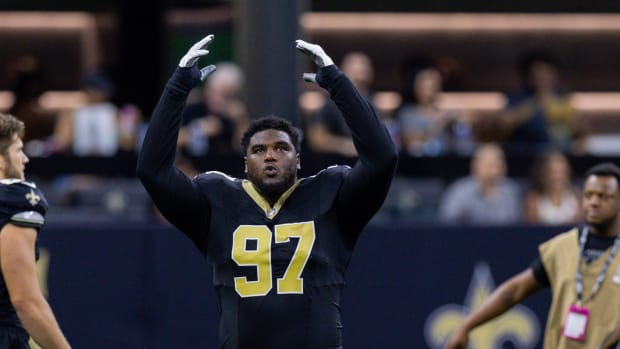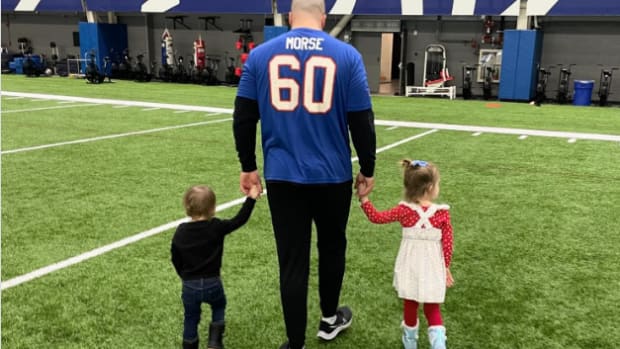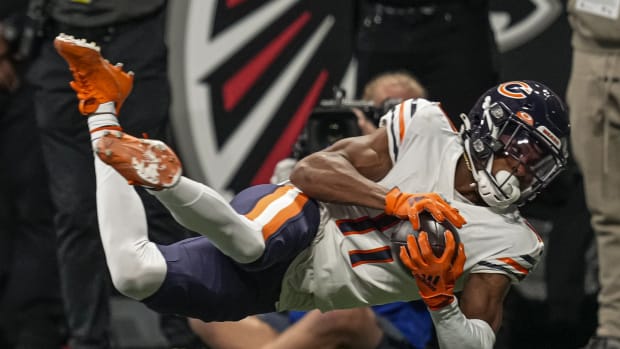Competitive balance would look a lot different if MLB were like NFL
The races have rarely been this close with just a few days left. In the AL, just three teams have locked up postseason berths, with five others battling for the last three spots. There's a great race between the Yankees and Rays in the East for a first-round bye, while tonight's Tigers/Angels game will serve as an elimination for one of the two teams. The National League is even more exciting: 14 of 16 teams remain alive, and no one, not even the league-best Cardinals, has clinched a spot. It's the kind of parity that Bud Selig has been looking for since he became commissioner over 15 years ago.
Confused? Well, don't be. What I'm describing is what the MLB playoff picture would look like if baseball was like the NFL, with 16 games in a season and 12 postseason berths. (The NFL advanced six teams per conference in a three-division structure with 28, then 30, teams from 1990 through 2002, before moving to the current four-division-per-conference setup.) Every team in baseball has played 13, 14 or 15 games, putting us at a comparable point to Week 16 of the NFL season, with two games left. And as is often the case in the NFL, there's little separation among them at this point. The entire NL, in fact, is separated by just 4½ games, from the Cards at the top to the Astros at the bottom. Twenty-two of baseball's 30 teams would remain alive for the playoffs if MLB played by the NFL's rules.
For 17 years, the words "competitive balance" have been held over baseball like the hammer of Thor. From Selig's injection of the term into collective bargaining to the cries of media who have never grasped the economics of sports to the relentless praise of the NFL by its partners, competitive balance has been cited as one of pro football's biggest advantages over baseball. Every team has a chance to win in football, every season allows more teams to contend, no teams start the season without "hope and faith," and rarely are teams locked into postseason berths when camps break.
That balance, however, is merely an illusion created by the structure of the two leagues. The NFL never has baseball's September, never sees half the league playing out the string over the final sixth of the schedule, because when you play 16 games, you simply cannot get that kind of separation. By having just 16 games, the chance to recover from a bad start or a critical injury is limited; witness the Patriots, who had a perfect regular season in 2007, but missed the playoffs the next year after quarterback Tom Brady was injured in the season opener. On the flip side, winning a few close games has a disproportionate effect on your record when you play just 16 times. Last year the Cincinnati Bengals outscored their opponents by just 14 points in total, but by winning three early games by a field goal each, two of them road games over divisional rivals, they set the stage for a 10-6 campaign and a division title. No one injury or brief stretch of good fortune can impact a baseball team's record in quite the same way.
Moreover, by advancing 12 teams to its postseason, the NFL lowers the barrier for entry in a way that creates opportunity for lesser teams. In MLB, if you're 70-70 with 22 games left, you're clinging to life; in the NFL, if you're 7-7 with two games left, you probably control your own destiny. If you're 6-8, you may still have a chance at the playoffs, whereas a 60-80 MLB team is probably hearing that it should fire the manager, toss the GM, trade the veterans and, by god, lower ticket prices. More teams do have a chance to compete in the NFL, but that's simply because "compete" has been defined as "stay around .500 for 14 games."
It's not that one league's structure is better than the other. It's that the two aren't comparable in any meaningful way. MLB plays 10 times the games that the NFL does and has a postseason that is more exclusive by a third. MLB has significant in-season roster turnover, both from a minor-league system and via trading; the NFL has virtually none. MLB teams are not reliant on any one player the way NFL teams are reliant on the health and performance of their star quarterbacks. If an NFL QB goes down in a game, that team is probably going to lose; if he goes down for the season, he can take the team with him. If the MLB season were just 16 games long, the top starting pitchers would make more than all of their teammates combined.
For too long now, MLB has tried to be like the NFL, emphasizing the postseason at the expense of the regular season while embracing the idea that every team should be competitive every year. It was a ridiculous notion in 1994, when MLB realigned and foisted a new round of postseason play on us, and it's a ridiculous notion now. MLB has raised a generation of fans who don't appreciate the idea of September, of a long, drawn-out pennant race in which there can be just one winner, who don't understand that sometimes a great team can fall short of the postseason or even be eliminated in it, without changing its greatness. The game has pandered to the modern idea that what matters isn't the 26 miles you run at a steady pace, but the 300-meter sprint to the finish.
That should stop. Instead of cowering when it's compared to the NFL, MLB and its leaders should stand up and brag about the differences that make its game great. It should note the math of the issue, that the NFL's competitive balance is the natural consequence of a short regular season and a larger postseason, and that MLB's competitive balance, considered in the context of its own sport, is good.






































